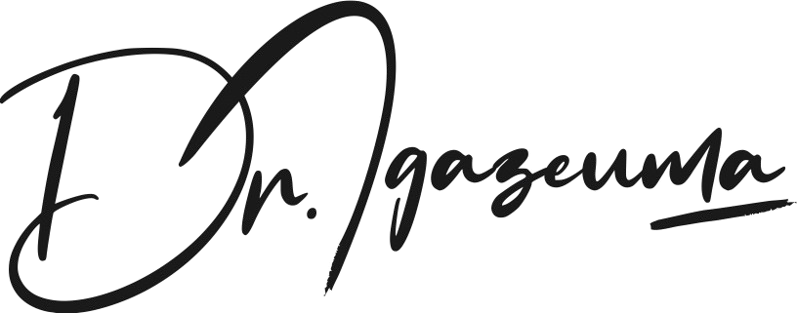Guide to job hunting
Virtual interviews are no easier than the panel of interviewers I sat face-to-face with in my early career years. As Covid-19 came upon us in 2020 threatening our mental health, wellbeing, and causing job loss, I had the opportunity to test my approach to job interviews after several years.
For me, Covid brought opportunities and I was busy with one virtual interview after another. By August I had two job offers. My participation at a good number of interview panels helped me master how to leave a lasting image of myself after an interview.
Let me disabuse your mind of the notion that your resume is the reason you were not successful at your last job prospect. This is not true. Your resume actually has one job: to get you invited to an interview. Once you get invited to the interview, it is no longer the resume’s fault you did not get the job – it is simply because you didn’t pass the interview.
Some time ago I ran into a friend from University and found he had similar ‘luck’ as I did when it came to job interviews. Tony’s experience is interesting because of this hat trick where he is rejected in three different job interviews only to get offers for the same jobs. After his first interview he never got a response, another candidate was given the offer. He got called back weeks later and learned the candidate declined the offer. The second time, Tony received a rejection email. In the third instance, an insider gave him the feedback that someone had resumed the position. In all three cases, he got the job in the end.
Do you think it was luck, coincidence, or strategic?
I have known Tony since we met on the tennis court in school. He was unassuming and reserved but when he got into play, he showed another side of himself. The game either fired him up or he was just so self-aware that he regulated his personality. Outside the game, when he was in a group with different characters, he could switch from being cordial to A to sharing sarcasm and jokes with B, then you will see him as a down-to-earth matter-of-factly person with C.
Tony’s present job with an investment firm is his third in his 16-year career. When I asked him to describe how those interviews went, I picked up pointers as to why recruiters that initially rejected him after an interview would later offer him the same job. The two tests I believe he passed despite his failure at the interview were the Good Person and Energy Test.
The Good Person Test
A culture-fit test is a part of most interviews. Hiring managers assess what qualifies as a good culture fit by checking if candidates values, behaviour and ethics align with the organization’s priorities. Tony admitted that he took a long pause and struggled to answer the culture fit questions. This may have been interpreted that he did not fit both the job and the workplace culture.
When someone’s personality does not seem to align with culture-fit questions and they are not inclined to give dishonest responses at an interview, my advice is to make sure they pass the ‘good person test.
I have known Tony to be kind, he was always willing to help but people sometimes think goodness doesn’t matter like performance at work. Some even think it’s a liability in the business because you are less likely to be competitive when you are good.
However, the intuitive employer knows they can rely on someone who lives by the Golden Rule. They are not so driven by benefits and career growth that they do not care about others.
When a hiring manager identifies a candidate with experience and capacity for the job but who is unable to score as high in cultural fitness, they must decide which is more important at some point. In their moment of humanity, they remember this good person as an employee who will be service-oriented and always be there to give back.
If being culturally unfit is responsible for failing at an interview, don’t worry about it if you are truly a good person. Such an employer does not deserve you. The idea of culture fit as criteria for hiring could be a sign that the organisation discriminates against employees that don’t belong’. If a company is diverse, it shouldn’t pick and choose based on employee’s fitness to an internal code they are yet to experience. The ability to adapt and emotional intelligence are better indicators for judging a person’s fitness for the workplace no matter the culture.
The Energy Test
Tony was a quiet and unassuming person, but he told me how intentional he was at interviews. An HR person described him once as being overconfident during an interview. The hiring manager on the other hand wanted to see a candidate that showed eagerness to learn, humility and loyalty. Tony recalled that he identified the micro-manager in him but decided to not diminish himself just because he wanted this job. His job was to sell himself at the interview and he did this by trying to show excellence energetically. The goal was not to be the loudest person in the room, but he certainly did “turn it up” a little.
An interview is a good place to identify an exceptional person who can infuse energy into a team. When Tony was told a part of the job he liked he would say “Great! That sounds really interesting. ” He didn’t get the job. Initially, he thought he might have presented himself as being too enthusiastic, but he resumed the same job after he was called back by the same HR person that thought he was overconfident. He learned that some panel members were impressed by his energy and voted for him to be invited.
Interviews are crucial for landing your dream job, but they are not all that is needed for fulfilment in life. I experienced a dream job that quickly turned into the worst job ever within 3 months and came to realise that interviews are like a performance. When it is over the curtains draw close, reality sets backstage. After you have mastered the tricks of passing interviews and panellists are impressed by your ability to show likeability, intelligence and leadership ability, remember that being successful in life is not determined by those qualities alone.
The best job you will ever get in life is being true to your values. Through self-awareness, you can apply your gifts to touch the lives of people in your space. When you get that interview invitation, stay true to yourself, prepare hard and remember that failing an interview is not losing the job of your life.


